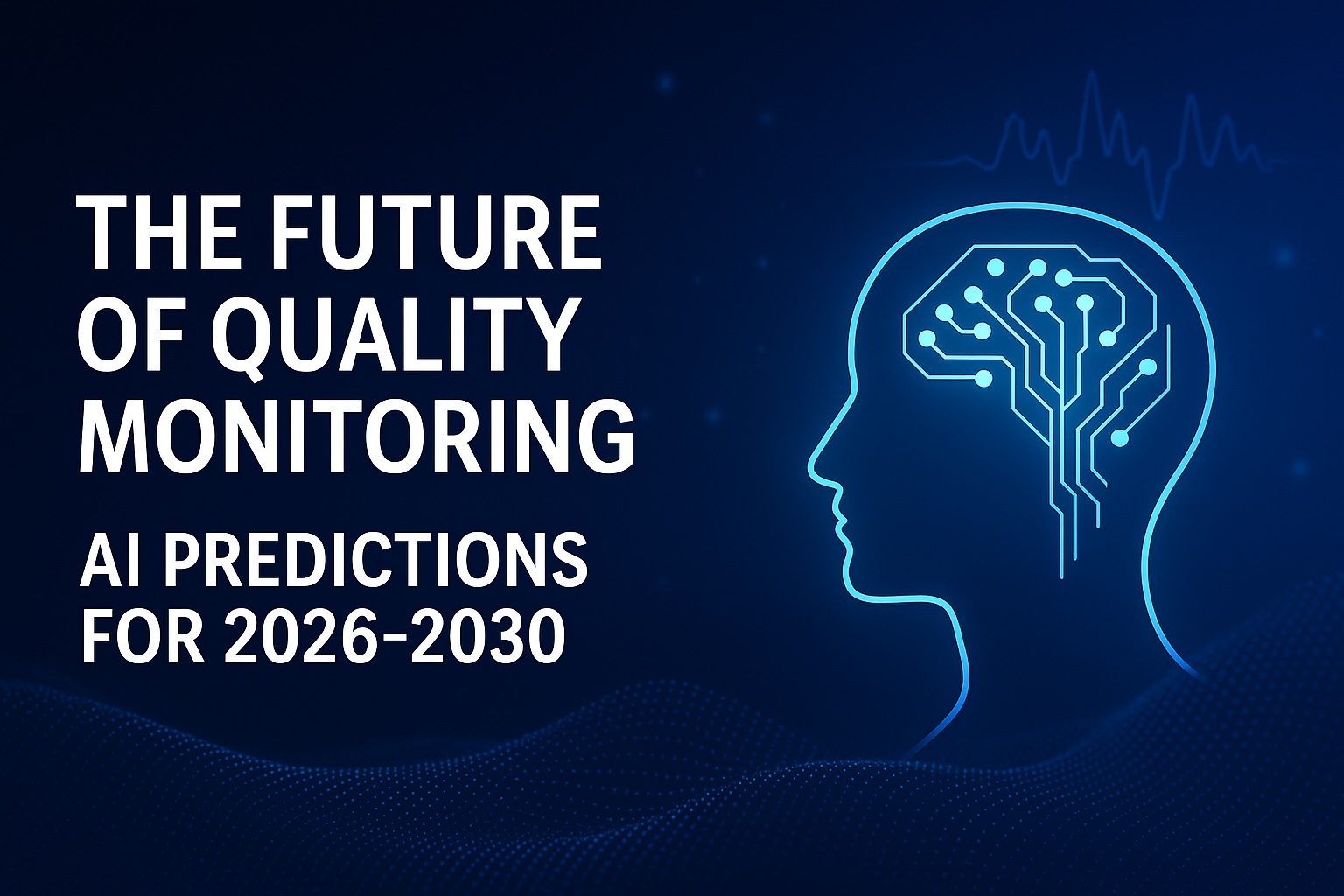
How AI is Revolutionizing Qualitative Analysis of Customer Feedback
The Importance of Qualitative Analysis of Customer Feedback
Why Customer Feedback is Essential
Customer feedback is a crucial resource for any company looking to remain competitive in today's market. It provides direct insights into what customers think about products and services, helping businesses identify strengths and areas for improvement. In 2024, the importance of customer feedback is amplified by increasing consumer expectations and the need to personalize customer experiences.
Customer feedback analysis allows companies to:
- Identify customer needs and expectations: Understand what customers want and how they perceive products and services.
- Improve products and services: Use feedback to make improvements and innovate.
- Increase customer satisfaction and loyalty: Meet customer expectations to strengthen their loyalty.
- Reduce churn: Identify and resolve issues before they lead to customer loss.
Companies like Amazon and Airbnb have integrated customer feedback into their core strategies, using this information to continually improve their offerings and maintain high customer satisfaction levels.
Traditional Challenges of Qualitative Analysis
Traditional qualitative analysis of customer feedback presents several challenges. Classic methods, such as paper surveys and phone interviews, are often slow and limited in scope and accuracy. Companies must process large volumes of unstructured data, requiring significant time and human resources to extract meaningful insights.
Key challenges of traditional qualitative analysis include:
- Volume of data: Managing and analyzing large amounts of unstructured feedback.
- Subjectivity: Analyst interpretations can vary, leading to bias.
- Time and resources: Manual methods are time-consuming and require specialized skills.
- Real-time updates: Tracking and analyzing feedback in real-time is difficult with traditional methods.
These challenges make traditional qualitative analysis inefficient and impractical for modern businesses, especially in the digital age where speed and agility are essential.
How AI is Transforming Qualitative Analysis
AI Technologies Applied to Qualitative Analysis
Advances in artificial intelligence offer powerful solutions to overcome the challenges of traditional qualitative analysis. AI technologies such as natural language processing (NLP) and machine learning enable companies to quickly and accurately analyze vast amounts of unstructured data.
Natural Language Processing (NLP)
NLP allows machines to understand, interpret, and manipulate human language. By applying NLP algorithms to customer feedback, companies can extract themes, sentiments, and relevant insights from textual data.
Example: Gravite uses NLP to automatically analyze customer comments, identifying positive, negative, and neutral sentiments, as well as recurring themes. This enables companies to quickly understand customer perceptions and take action accordingly.
Machine Learning
Machine learning enables AI systems to learn and improve continuously from data. Using predictive models, companies can anticipate future trends and behaviors based on past feedback.
Example: A financial services company uses machine learning algorithms to predict customer satisfaction based on past interactions, allowing them to target at-risk customers and take proactive measures to improve their experience.
Benefits of AI in Customer Feedback Analysis
Integrating AI into customer feedback analysis offers numerous benefits, making the process more efficient, accurate, and actionable. Here are some key advantages:
Efficiency and Speed
AI can analyze large amounts of feedback in record time, significantly reducing the time and resources needed compared to traditional methods. Companies can thus obtain real-time insights and respond quickly to customer needs.
Accuracy and Objectivity
AI algorithms eliminate human bias, ensuring more objective and accurate feedback analysis. Technologies like NLP and machine learning can identify trends and sentiments with high precision, even in large and complex datasets.
Actionable Insights
AI allows for the extraction of actionable insights from customer feedback, helping companies make informed decisions. For example, Gravite provides recommendations based on feedback analyses, enabling companies to prioritize the most impactful actions.
Scalability
AI solutions are highly scalable, allowing companies to manage growing volumes of customer feedback without proportionally increasing necessary resources. This is particularly beneficial for fast-growing companies or those with a large and diverse customer base.
Steps to Integrate AI into Customer Feedback Analysis
Identifying Needs and Objectives
The first step to integrating AI into customer feedback analysis is to clearly identify specific needs and objectives. This involves understanding which types of feedback are most relevant to the company and how this information can be used to improve products and services.
Define the Types of Feedback to Analyze
- Customer Comments: Analyze comments left on sales platforms, social media, and forums.
- Satisfaction Surveys: Evaluate responses to post-purchase satisfaction surveys.
- Online Reviews: Collect and analyze reviews left on review sites and mobile apps.
Establish Clear Objectives
- Improve Products and Services: Identify strengths and areas for improvement.
- Increase Customer Satisfaction: Reduce complaints and increase positive reviews.
- Enhance Customer Loyalty: Develop strategies to increase customer retention and loyalty.
Choosing AI Tools and Platforms
Once needs and objectives are defined, the next step is to choose the most suitable AI tools and platforms for analyzing customer feedback. Several solutions are available on the market, each offering specific features to meet different needs.
Gravite
Gravite is an AI-powered qualitative analysis platform that allows companies to transform large volumes of customer feedback into actionable insights. It uses NLP and machine learning to analyze sentiments and identify recurring themes.
Medallia
Medallia is a customer experience management platform that collects and analyzes feedback in real-time, offering advanced visualizations to help companies improve their customer experience.
Qualtrics
Qualtrics is an experience management platform that allows the creation of surveys and analysis of customer feedback. It offers reporting and visualization tools to facilitate data-driven decision-making.
Implementation and Team Training
Integrating AI into customer feedback analysis requires careful implementation and adequate team training. Here are the key steps to successful integration:
Planning and Deployment
- Evaluate Technological Needs: Identify the infrastructure and resources needed to implement AI solutions.
- Gradual Deployment: Start with a pilot project to test the effectiveness of the solution before extending it company-wide.
Team Training
- Technical Training: Train technical teams on the use of AI tools and platforms.
- Analytical Training: Train analysis teams on interpreting results and insights provided by AI.
Monitoring and Evaluating Results
After integrating AI solutions, it is crucial to monitor and evaluate results to ensure that objectives are met and customer feedback is analyzed effectively.
Tracking Key Performance Indicators (KPIs)
- Customer Satisfaction: Track changes in customer satisfaction scores before and after AI implementation.
- Response Time: Measure the reduction in time needed to analyze and act on feedback.
- Accuracy of Insights: Evaluate the accuracy of insights generated by AI compared to traditional analyses.
Adjustments and Improvements
- Continuous Feedback: Collect internal feedback on the use of AI tools and make adjustments as needed.
- Technological Improvements: Regularly update AI solutions to incorporate the latest technological advances.
Case Studies: Companies Using AI for Customer Feedback Analysis
Case Study 1: Gravite
Gravite is a pioneer in the use of AI for customer feedback analysis. Using NLP and machine learning algorithms, Gravite enables its clients to transform vast amounts of feedback into actionable insights.
Application Example
An e-commerce company uses Gravite to analyze customer comments across multiple platforms. In a few minutes, Gravite can identify recurring themes, expressed sentiments, and areas needing improvement, allowing the company to react quickly and improve its products.
Case Study 2: Amazon
Amazon, a global leader in e-commerce, uses AI technologies to analyze customer feedback on a large scale. By integrating AI into its feedback management system, Amazon can quickly identify issues and optimize its services.
Application Example
Amazon uses machine learning algorithms to analyze customer reviews and predict satisfaction trends. This allows Amazon to anticipate customer needs and offer personalized recommendations, enhancing the shopping experience.
Case Study 3: Airbnb
Airbnb uses AI to analyze user feedback and improve the rental experience. By collecting and analyzing host and guest reviews, Airbnb can identify friction points and make targeted improvements.
Application Example
Airbnb uses AI tools to analyze comments left by users after their stay. The generated insights help Airbnb improve listing quality, personalize recommendations, and increase user satisfaction.
Future Developments in AI for Qualitative Feedback Analysis
Upcoming Innovations
AI technologies continue to evolve, offering new possibilities for qualitative analysis of customer feedback. In 2024, several innovations promise to further transform this field.
Conversational AI
Conversational AI, such as chatbots and virtual assistants, will become more sophisticated, allowing real-time interaction with customers and more natural and engaging feedback collection.
Advanced Predictive Analysis
Advances in machine learning will enable the development of even more accurate predictive models, helping companies anticipate satisfaction trends and make proactive decisions.
The Impact of AI on Customer Relationships
AI has the potential to transform customer relationships, making interactions more personalized and increasing customer satisfaction. Companies adopting these technologies can gain a significant competitive advantage by offering superior customer experiences.
Increased Personalization
AI allows for personalized interactions with customers based on their preferences and past behaviors, improving their overall experience.
Improved Responsiveness
AI solutions enable companies to respond more quickly to customer feedback, resolving issues before they become critical and strengthening customer loyalty.
Conclusion
Summary of Key Points
In summary, AI is revolutionizing qualitative analysis of customer feedback, making the process more efficient, accurate, and actionable. Companies can use technologies like NLP and machine learning to transform vast amounts of feedback into actionable insights, improving their products and services.
Call to Action
Companies must adopt AI to stay competitive in 2024. By integrating AI solutions into their customer feedback analysis process, they can enhance customer satisfaction and loyalty, and make more informed and proactive decisions. It is time to embrace this technological revolution to transform the customer experience and ensure long-term success.




